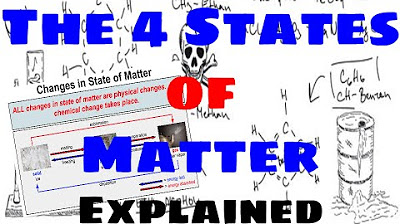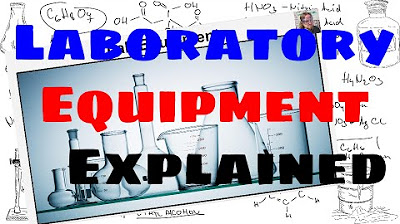Types of Claims: Claim of Fact, Claim of Policy, and Claim of Value | Teacher Isko
Summary
TLDRIn this educational video, Mr. Ramil Nepomoceno, a Grade 10 English teacher, introduces the three types of claims: claim of fact, claim of policy, and claim of value. He explains each type with clear definitions and examples, guiding students on how to identify and craft effective claims. The video also covers the characteristics of a good claim, such as being arguable, specific, and logical. Additionally, the video includes a quiz to help students apply their understanding. This lesson is designed to improve students' critical thinking and writing skills in persuasive or argumentative contexts.
Takeaways
- 😀 The video provides English grammar lessons, specifically focused on the three types of claims: claim of fact, claim of policy, and claim of value.
- 😀 The host encourages viewers to subscribe and ring the bell for future video notifications.
- 😀 A claim is defined as an arguable statement central to a text, aimed at proving a point with evidence and explanations.
- 😀 A good claim should be argumentative, debatable, specific, focused, engaging, and logical.
- 😀 An example of a poor claim is 'smoking is dangerous to one's health' because it is already widely proven and not debatable.
- 😀 Claims of fact assert that something exists, existed, or will exist and can be supported or disproven by facts or data.
- 😀 To identify a claim of fact, one should ask if it can be investigated or researched for truth or evidence.
- 😀 Claims of policy argue that something needs to be done, often using modal verbs like 'should,' 'must,' or 'ought to'.
- 😀 An example of a claim of policy is: 'Marijuana should not be legalized because of the potential for abuse.'
- 😀 Claims of value express judgments about preferences, likes or dislikes, and often compare two ideas or declare one better than another.
- 😀 A claim of value example includes: 'Animal testing is the worst way to check medical products.'
- 😀 The video concludes with a short quiz where viewers identify whether statements are claims of fact, policy, or value.
Q & A
What is the main objective of the lesson in the video?
-The main objective of the lesson is to explain the three types of claims used in writing: claim of fact, claim of policy, and claim of value, and to guide students in identifying and understanding these types of claims.
What is a claim, according to the lesson?
-A claim is an arguable statement that defines the goal of an essay. It is the central statement of a text where the writer tries to prove their point using evidence, details, and explanations.
What are the four characteristics of a good claim?
-The four characteristics of a good claim are: it should be argumentative and debatable, specific and focused, interesting and engaging, and logical.
Why is 'smoking is dangerous to one's health' not considered a good claim in persuasive writing?
-'Smoking is dangerous to one's health' is not considered a good claim in persuasive writing because it is already a proven fact and is not debatable, which makes it unsuitable for argumentation.
What defines a claim of fact?
-A claim of fact asserts that a condition existed, exists, or will exist. It is based on facts or data and must have the potential for controversy or conflict, meaning it can be proven or disproven with evidence.
What are some examples of questions to determine if a statement is a claim of fact?
-To determine if a statement is a claim of fact, ask: 'Can we investigate it through research or interviews?' and 'Did it happen?'
What is the key feature of claims of policy?
-Claims of policy argue that something needs to be done, such as making a law or taking action. They often use modal verbs like 'should,' 'must,' or 'ought to' to suggest what should or should not be done.
What question should be answered to check if a claim is a claim of policy?
-To check if a claim is a claim of policy, the key question to answer is: 'What should be done?'
What is a claim of value?
-A claim of value is based on preferences, such as likes or dislikes, or evaluations of good or bad. It often compares two ideas or states that one thing is better than another.
What are the two key questions to determine if a statement is a claim of value?
-The two key questions for identifying a claim of value are: 'Is it good or bad?' and 'Is it valuable or not valuable?'
What type of claim is 'It is totally unethical for Russia to not share the COVID-19 vaccine with other countries?'
-This is a claim of value because it expresses a judgment about the morality or ethics of Russia's actions regarding the vaccine distribution.
What does the short quiz at the end of the video assess?
-The short quiz at the end of the video assesses the viewers' understanding of the three types of claims by asking them to identify whether given statements are claims of fact, claims of policy, or claims of value.
Outlines

此内容仅限付费用户访问。 请升级后访问。
立即升级Mindmap

此内容仅限付费用户访问。 请升级后访问。
立即升级Keywords

此内容仅限付费用户访问。 请升级后访问。
立即升级Highlights

此内容仅限付费用户访问。 请升级后访问。
立即升级Transcripts

此内容仅限付费用户访问。 请升级后访问。
立即升级浏览更多相关视频

The Four States of Matter - Explained

Lab Equipment - Explained

3. Gr 11 Life Sciences - Population Ecology - Theory 3 Mark Recapture Method

4. Gr 11 Life Sciences - Population Ecology - Worksheet 1

PENJASKES KELAS X - SOFTBALL

Introduction to Culture [AP Human Geography Review Unit 3 Topic 1]

Menentukan Mr ( massa molekul relatif )
5.0 / 5 (0 votes)
